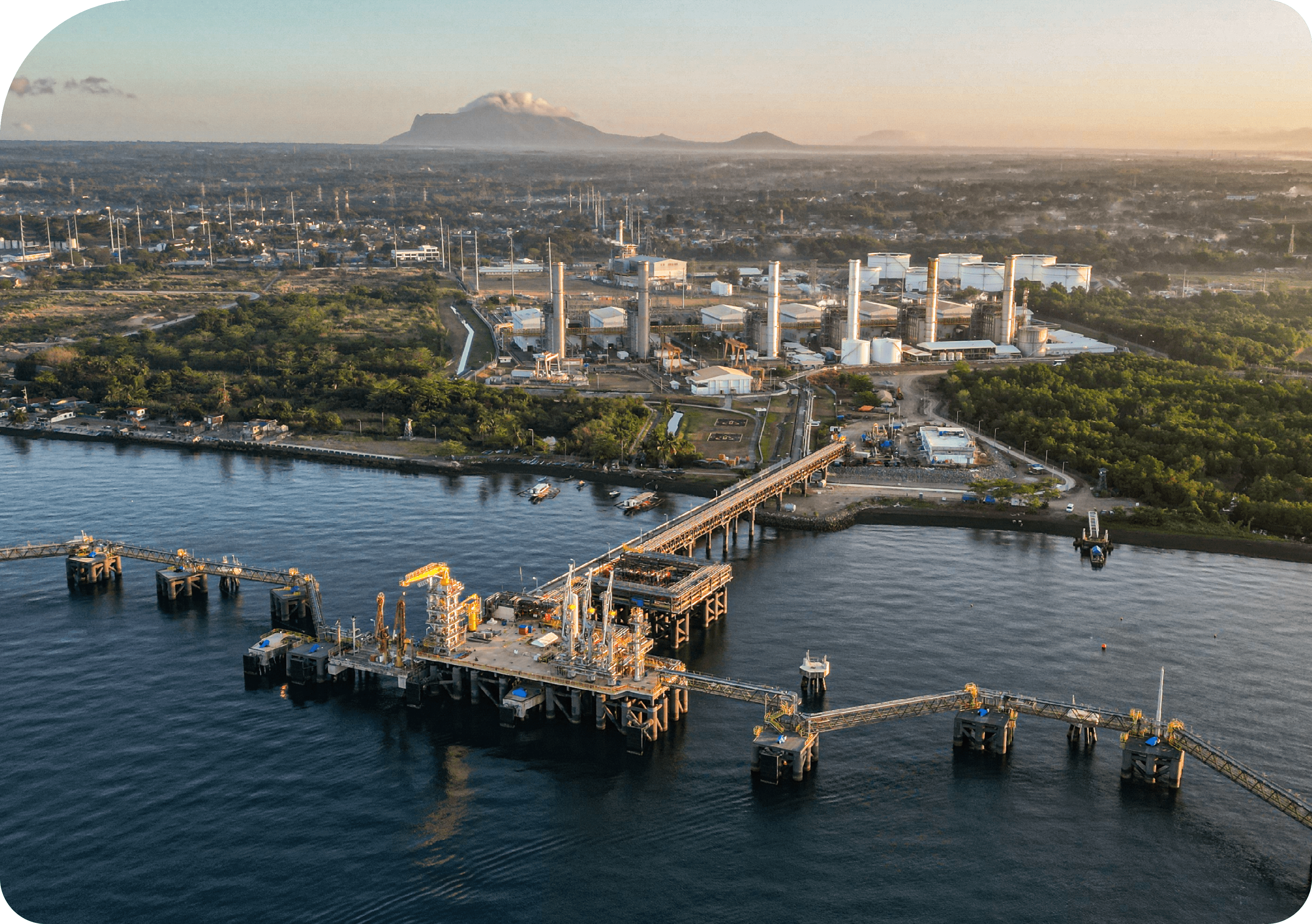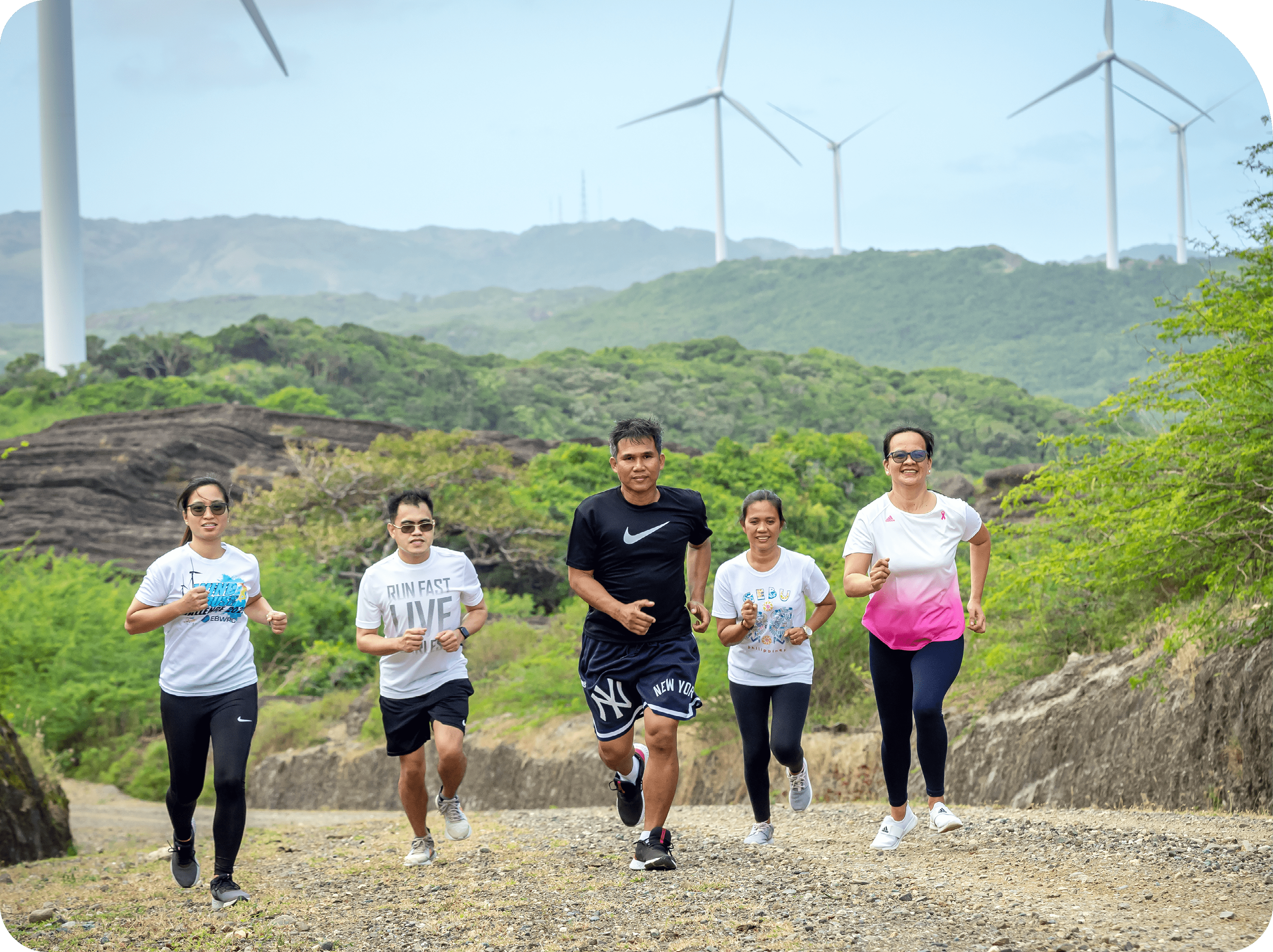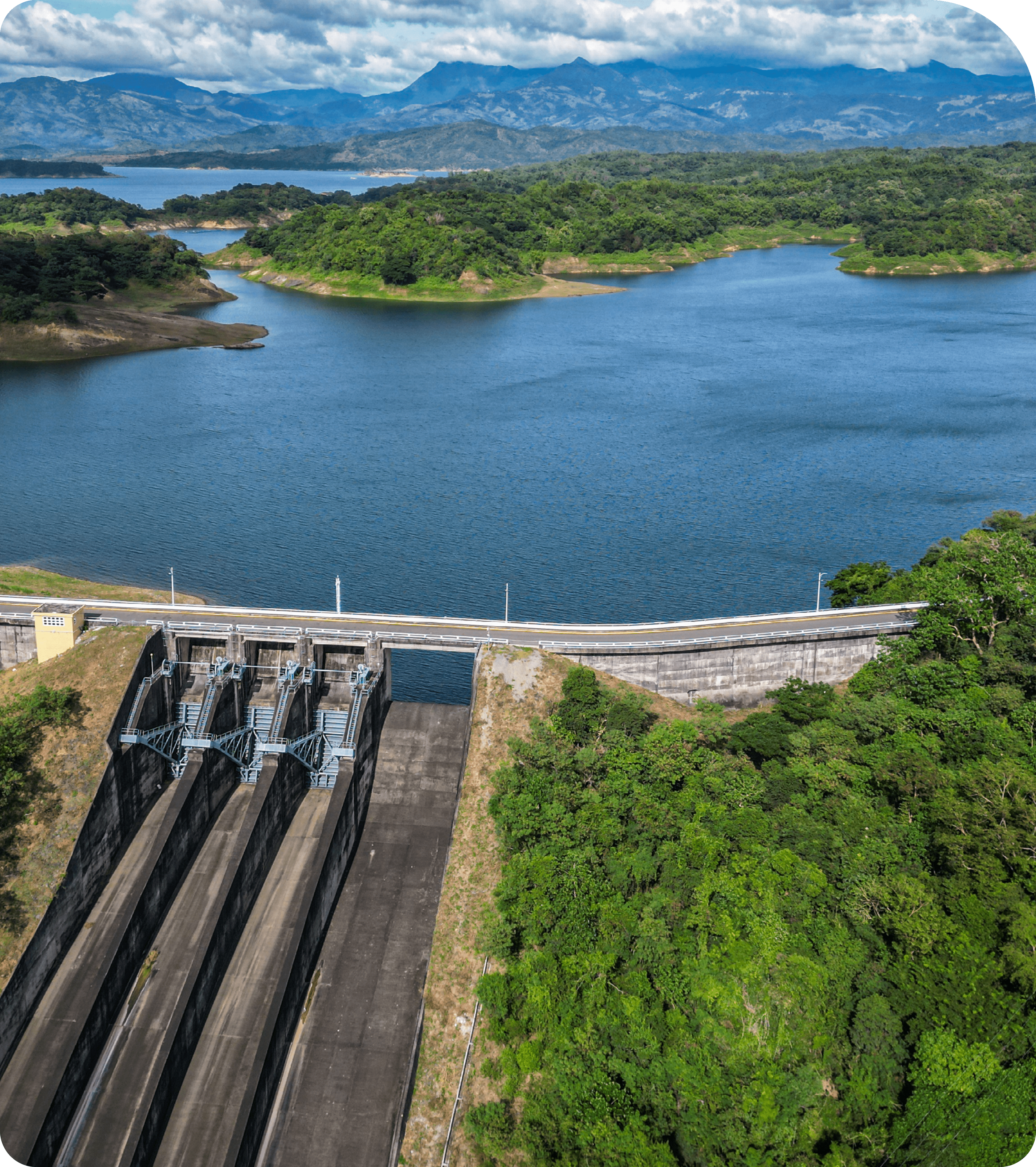Navigating Local and Global Constraints
1. Geopolitical Conflicts and the COVID-19 Pandemic
Geopolitical factors, such as the Russia-Ukraine Conflict, and COVID-19 restrictions have impacted commodity prices, energy costs, and contract structures. These have caused concerns in the world’s fuel supply and energy security. Likewise, macroeconomic factors have challenged the environment for project development with foreign exchange rate volatility, potential stagflation, and rising credit costs.
Global market conditions have led to significant volatility in the power sector. Increasing commodity costs, for instance, have significantly impacted coal-based contracts, while prices of renewable energy prices like Geothermal, Wind, and Solar remained relatively consistent. Therefore, volatile market conditions highlight the need for a diverse mix of power plants, which help mitigate the macroeconomic impacts to the energy industry of a country.
Implication to First Gen:
These factors impact the cost of electricity generation, particularly for parts of our portfolio that are linked to these. However, First Gen’s diverse and complementary portfolio of renewables and gas puts us in a strong position to effectively navigate these world dynamics.

2. The Philippine Energy Sector
As the globe experienced various threats to energy security, the Philippine experience also highlighted the need for further energy supply. In 2022, the country experienced periods of high WESM prices during periods with high demand and power plant outages, both of which contributed to incidents of tight energy reserves. This illustrates the need for additional power reserves and new capacity from reliable power sources.
The Philippine Department of Energy (DOE) also recently released its latest version of the Philippine Energy Plan (PEP) 2040, which presents an overall energy strategy. This plan discusses a significant increase in capacity in the future to address energy security risks that we are already concerned with today. This PEP foresees the need to almost double installed capacity by 2030 and to grow by almost 5 times by 2040. Moreover, this growth will need to come primarily from gas and renewables, consistent with the country’s overall goal to transition away from coal. Consistent with the rest of the world, the Philippines aims to lower its carbon footprint and evolve its power sector to a cleaner, more resilient, industry.
Implication to First Gen:
In spite of challenges, the Philippine Energy Transition continues, as seen by the government’s support to increase variable renewable energy (VRE) as reflected in the PEP 2040. This development cannot be achieved without enabling the function of natural gas. In line with this, the PEP 2040’s vision for a long-term power mix driven by natural gas and renewables is consistent with the energy transition’s requirements for a balanced energy mix. In turn, this outlook is consistent with the company’s own plans for its portfolio.
Therefore, First Gen is committed to further developing additional gas and renewable capacity. We aim to develop clean energy solutions and projects to meet the rising energy demand of the country.
One of the crucial projects that is already underway is the LNG Terminal. Through utilizing liquefied natural gas (LNG), for instance, First Gen is directly addressing the Malampaya resource depletion and ensuring fuel flexibility. This transition to LNG ensures the long-term use of natural gas–which, in turn, is crucial to support an increased dependence on renewable energy. Moreover, First Gen is developing several clean and renewable power projects to help propel this clean energy transition, all while maintaining our assets’ resilience and dependability.
The Clean Energy transition is central to First Gen’s purpose and its overall strategy. First Gen is committed to advancing national clean energy capacity by growing its renewable and natural gas portfolio. The Philippine Energy Transition will not happen overnight, but First Gen’s power portfolio remains suited to support it.

3. Social Environment
More and more, businesses are tasked with the responsibility to think beyond the bottomline and integrate sustainability and stakeholder value into their strategies. The power sector, with its utilization and contribution to various capitals, is definitely not exempt from this reality.
The global impact of climate change has increased awareness on the significant impact of ESG on business. In line with this, the Bangko Sentral ng Pilipinas (BSP) has provided guidelines on the implementation of the Environmental and Social Risk Management System, which is in turn aligned with the Network for Greening the Financial System (NGFS), which the BSP is a part of. These are all consistent with global efforts to improve Financial Reporting of ESG–as indicated by the efforts of the International Financial Reporting Standards Board (IFRS) to harmonize ESG standards globally.
Across various industries, businesses are increasingly becoming aware of their emissions. This awareness has increased in scope, as businesses aren’t just concerned about their own (“Scope 1”) emissions, or even limited to their direct inputs (“Scope 2”), but increase all the way up their value chain to consider “Scope 3” emissions–which includes where businesses ultimately source their power from. In fact, sourcing renewable energy is one of the most affordable and readily available ways of greening supply chains. As such, various companies and industries have also targeted to disclose their Scope 3 emissions–showing how critical it is for companies to consider how to green their entire supply chain1.
Across sectors, ESG has increasingly been in the forefront–particularly with regards to sustainability and health. In July 2022, for example, the United Nations (UN) General Assembly approved a landmark resolution recognizing the human right to a clean, healthy, and sustainable environment through a unanimous vote. As Covid concerns continued, the concern for health has also increasingly been highlighted–particularly as vaccination efforts continued in the country. Moreover, various movements have been made to support climate justice, as cases have been made to identify the negative impact of GHG emissions on human rights.
Implication to First Gen:
This development is definitely aligned with the Company’s goals, as First Gen’s mission of forging collaborative pathways for a decarbonized and regenerative future highlights our commitment to delivering value to our stakeholders. Environmental preservation is vital to the Company and strengthens the need to strive for the decarbonization of our operations. By continuously improving our capability to generate power from natural gas and expanding our reach into RE assets, we are catering to the growing base of customers that are ready to embrace sustainable consumer practices and are looking into clean energy alternatives.
Unlike coal and oil plants that emit harmful by-products, our clean and renewable power plants are built at the center of communities– giving us the opportunity to provide immediate and lasting impact to our stakeholders. The communities that surround our facilities benefit from partnerships that foster inclusive growth. We aim to do this through efforts such as initiating economic activities in project areas, improving the provision of basic utilities, and providing additional resources for schools and community development activities.
1Carbon Disclosure Project, Eco-Business, Microsoft, Airbus4. Environmental and Planetary Context
Climate change remains the largest environmental concern that the world is facing. In line with this, the UN Intergovernmental Panel on Climate Change (IPCC) released its last two chapters of the 6th Assessment Report, which outlined the severity of the challenge to adapt to and mitigate climate change.
In 2021, the Philippines submitted its first nationally determined contributions (NDC) in accordance with the Paris Agreement. This NDC includes the commitment to reduce greenhouse gas emissions to about 75% from 2020 to 2030 across multiple sectors, including energy. Furthermore, the 27th Conference of the Parties (COP27) highlighted the importance of renewables and low-emissions energy. All this highlighted the need to transition to a clean energy future.
Moreover, government agencies have established priorities to respond to the risks of climate change:
- The DENR have established policies related to climate change and provide national guidance on environmental and natural resources.
- The DOE, as indicated earlier, has also endeavored to accelerate renewable energy expansion and create an environment to encourage additional clean energy investment.
- The Climate Change Commission (CCC) convened a “Climate Investment Forum” that tackled how climate change will affect the country’s ability to develop, also creating opportunities for public and private action–including financing the country’s NDC.
Implication to First Gen:
In response, First Gen is committed to strengthening its clean and renewable energy portfolio. We continuously work to ensure our portfolio resilience as we also pursue growth.
As its effects intensify, climate change continues to pose a risk to the Company’s operations and assets. First Gen continues to strengthen the measures taken to mitigate the effects of landslides, flooding, typhoon winds, and other effects of inclement weather. Some examples of these are Earthquake Mitigation, Flood and Storm Surge Mitigation, and Volcanic Eruption Mitigation. These all ensure that our power plants continue to be reliable, even considering the significant impact of climate change and other natural occurrences.

5. Political and Regulatory Environment
The aforementioned DOE’s PEP 2040 highlights the power industry transition from oil and coal to RE and gas power sources. The national goal is 35% of RE by 2030 and 40% by 2040. The DOE also released the Renewable Portfolio Standards (RPS) which mandates electricity suppliers to source a certain percentage of their energy supply from an RE resource. This percentage was increased 2.52% every year from November 2022, to reach the 50% RE energy mix target by 2040. While the Philippines concluded its election in May 2022, resulting in a change in administration, these policies–as well as the coal moratorium–remain present, aiming to guide the Philippines towards a clean energy transition.
In addition, other national programs are being developed to support the growing RE industry:
- The Renewable Energy Trust Fund finances the research, development, demonstration, and promotion of RE systems;
- The development of energy storage and smart grid systems which optimize RE generation and dispatch;
- An ongoing national study on Competitive Renewable Energy Zones (CREZ) aims to identify potential areas for RE development. So far, it has identified 25 CREZ across the country which covers 152,097 of potential RE projects;
- The Green Energy Auction Program (GEAP) auctioned off 2,000MW in RE capacity to RE facilities without existing power supply agreements or power purchase agreements in 2022;
- Through the GEOP, First Gen obtained the largest share of end-users in the industry in 2022;
- The Retail Competition and Open Access (RCOA) which finalized the rules on Retail Aggregation, as follows:
- End-users within a Contiguous Area can join together and be treated as a single Contestable Customer; and
- The Minimum Aggregated Demand for Retail Access is set at 500kW.
Implication to First Gen:
In line with the developments in policy and regulations, First Gen is scaling up its capacity to bring value to customers and further developing its RE portfolio to deliver clean energy solutions needed by the country.

6. Technological Advancement
Technological advancement and decarbonization often come hand in hand. The aforementioned PEP 2040 encourages the use of cleaner technologies as part of the energy transition, such as hydrogen for power generation and fuel cells. There are also developments in carbon capture technology and research on its large-scale use to further decrease carbon emissions. In the long run, these will help further decarbonize our already low carbon portfolio.
Implication to First Gen:
First Gen continues to monitor key technological advancements, including:
- Keeping abreast on the commercial viability and local market opportunities of technologies that can address the gaps in RE systems, i.e. battery and energy storage technologies;
- Efforts to increase efficiency and decrease carbon intensity, such as high efficiency gas turbines
- Close monitoring of the development of emerging technologies such as Hydrogen and Carbon Capture that, while nascent, have long-term potential to decarbonize power generation; and
- Efforts to decarbonize our own operations, including energy efficiency initiatives, solar panel installation, and electrification projects to lower our fleet emissions
While a number of these technological advancements are still foreseen over the long-term, First Gen continues to closely monitor these developments and study ways to integrate these into its strategy and its mission.
7. The COVID-19 Pandemic Recovery and Hybrid Set-Up
As the globe recovered from the impact of COVID and restrictions eased, the country is starting its economic recovery path leading to increased business activity and mobility. In line with this, power demand growth was expected to “rebound” after the pandemic. However, this was tempered in 2022, largely due to global and macro-economic conditions. Despite this, First Gen’s plant operations continued to reliably generate power and even execute key maintenance and other activities.
In addition, employees continued to receive COVID-19 vaccines while following existing health protocols. Our online workforce have also increasingly transitioned into a hybrid set-up as government restrictions eased. In 2022, the gradual reopening of the head office in Rockwell Business Center and the transition to a hybrid set-up was achieved through new workplace technologies and telecommuting systems. This progression towards the new normal also allowed us to start ramping up our community activities, which helped us in creating stakeholder value.
It is part of our mission to urgently prioritize decarbonization as a critical component of regeneration. We believe that First Gen is in a strong competitive position in the growing renewable energy market thanks to our clean energy portfolio of zero carbon renewable energy and adaptable natural gas facilities. As long as we are committed to contributing to the restoration of societal and environmental systems, we support a world that is healthy, resilient, and adaptable to current and future upheavals.
